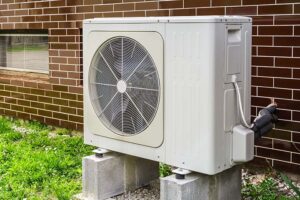Table of Contents
Heating systems are essential for preserving a comfortable level of living within a property. At the same time, such systems are prone to multiple issues caused by different types of sludge. Luckily, boiler magnetic filters effectively solve this problem by using powerful magnets that attract and isolate these contaminants, preventing their travel throughout the system.
However, it is relevant to mention that a boiler filter can potentially get clogged, subsequently losing its functionality. To ensure that a boiler filter operates to maximum efficiency, you must regularly clean and maintain this tool. Through this article, we will take a closer look at how the boiler magnetic-filter works and discuss crucial recommendations for keeping it clean.
Reasons to Clean a Magnetic Filter
A magnet filter, which is usually used in boiler systems, is designed to capture and remove any sludge, dirt, and debris that is present in the heating system. Neglecting to clean the magnet filter on a regular basis is likely to result in decreased heat output, as well as higher energy consumption. It also has the potential to cause leaks in the system, shortening the service life of a boiler and radiators.
Thus, ensuring the magnetic filter is kept clean is important for enhancing the effectiveness of a boiler, reducing energy costs, and extending the life cycle of a heating system.
Step-by-Step Guide to Cleaning a Filter
Safety Precautions
To avoid accidents, make sure the boiler is turned off and cooled down to a safe level before you start cleaning.
Shut Off Valves
To separate the magnet filter from the rest of the system, locate the shut-off valves and stop them. So, water can’t move through the filter while it’s being cleaned.
Drain the System
Open the drain valve on the pipe connected to the magnetic filter to release the water and reduce pressure in the system.
Remove the Filter Cap
Using the right tools that came with the magnet filter, carefully take off the top cover depending on how it was installed.
Inspect and Clean the Filter
Examine the filter for any signs of damage or excessive sludge accumulation. Clean the magnet inside the filter to ensure optimal performance.
Replace the Filter Cap
Once the filter is clean, firmly put the top cover back on and follow any other instructions given by the manufacturer.
Repressurize the System
It’s important to make sure there are no leaks before repressurizing the system if you need to.
Recommended Frequency for Cleaning a Magnetic-Filter
The age, water quality, and usage of a magnetic-filter for a combi boiler determine how frequently it needs to be cleaned. To keep the magnetic filter functioning properly, it should be cleaned once a year. To get rid of any particles, the filter needs to be cleaned a few days after the initial fitting.
How Does a Magnetic-filter Work?
From a kettle to a sink and everything in between, anything that uses water can get limescale and rust on it. This includes your heating system. While it may be easy to notice dirt accumulating in these objects, it is nearly impossible to detect what is lodged in your pipes and radiators. Limescale can accumulate in your heating system if you live in a hard water location. Furthermore, the cold water that enters from the mains may get contaminated and enter your radiators.
In your central heating system, you can find a lot of different kinds of metals. Iron, copper, and steel are the main three. Copper is mostly used for pipes because it is strong, easy to shape, and not heavy. Due to its low cost and ability to carry electricity well, aluminum is often found inside boilers. The black gunk that builds up in your pipes and radiators is mostly caused by steel. This is because it breaks down quickly when it comes in contact with air and water.
The steel sludge sticks to the magnet, which is why a magnetic filter works so well. This rusty steel stuff moves through the system and gets caught in the filter. This lets the clean water keep moving through your lines.
Sludge and other waste can make your home’s heating system work less well and even cause cold spots on your radiators. If the top of your radiators are only warm, there may be air in the system or a buildup of limescale, sludge, or rust.
This junk can be taken out of your system by a magnetic cleaner. Before attaching the magnetic-filter for the combi boiler, you might need to do a power flush if your system has a lot of old rust.
Conclusion
It’s crucial to clean the magnetic-filter in boilers. You may enhance your heating system, save energy, and prolong the life of your boiler and radiators by cleaning the filter appropriately and frequently. Regular magnetic filter maintenance keeps your home comfortable and energy-efficient while also improving the performance of your heating system.



